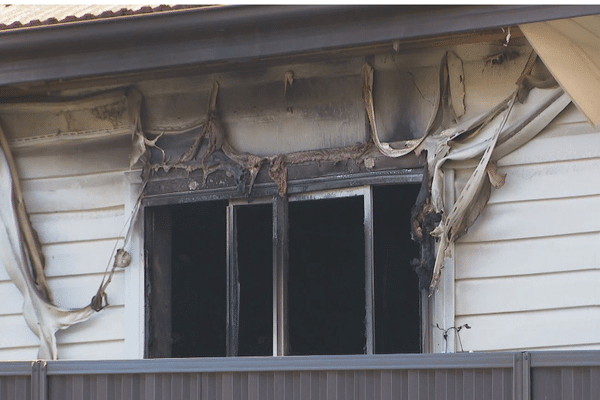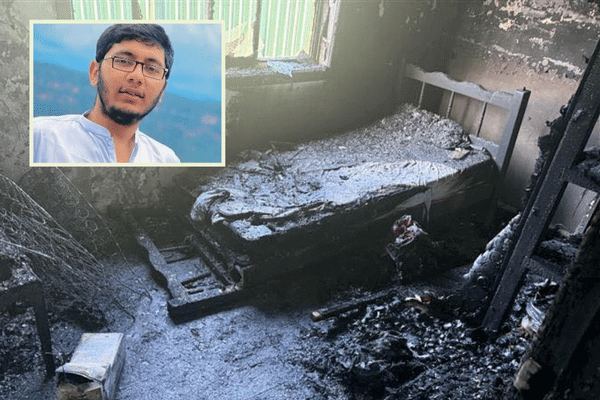International student Haidar Ali, 21, of Pakistan, lost his life in a tragic house fire in the Sydney suburb of Guildford. Ali had just emigrated to Australia in search of a better life. The fire, which started in the wee hours of Tuesday, is thought to have originated from Ali’s e-bike’s lithium-ion battery, which got too hot and started the fire.
According to the authorities, Ali and his five housemates were victims of the fire that broke out at their Rowley Road home at approximately 5 in the morning. As the fire raced through the house, it ensnared Ali in his bedroom, the exact spot where the battery had been left to charge the previous night. He couldn’t be saved despite the best efforts of the rescue workers.
For the five other people in the house, smoke inhalation was a problem, but they were able to escape. Paramedics attended to their needs at the spot before transferring them to a local hospital. Authorities have confirmed that their injuries are not life-threatening.
A Rising Worry: Lithium Battery Fires
The fire was most likely started by a malfunctioning lithium-ion battery, which is a growing concern with electric bikes, e-scooters, and other rechargeable gadgets, according to investigators. Overheating and, in extreme situations, devastating fires, are the consequences that firefighters have often warned about when it comes to charging these batteries overnight or using chargers that aren’t compatible with them.
The significance of fire safety measures, especially for individuals utilising battery-powered transportation, was emphasised by Adam Dewberry, the Superintendent of Fire and Rescue in New South Wales. Lithium-ion battery fires have been on the rise, which is very concerning. We strongly encourage the public to adhere to safe charging methods so that these events can be avoided,” he stated.

The significance of smoke alarms in private residences was also highlighted by authorities. Whether or not the smoke alarms on the Guildford property were operational during the fire is an unknown. Police are now gathering evidence and will submit a report to the coroner soon.
Community Mourns the Loss
Many in the community have come together to offer assistance in the wake of Ali’s terrible demise. In order to help pay for the costs of returning his remains to Pakistan so that his family can have a funeral there, friends have started fundraising campaigns.
While investigators are still looking into the incident, fire safety experts are warning Australians to exercise caution when charging rechargeable batteries and to follow the correct procedures to avoid similar catastrophes.
Fire Hazards and Safety Measures Relating to Lithium-Ion Batteries
This terrible event highlights the risks associated with lithium-ion batteries, such as fire, explosion, radiation, high temperatures, chemical exposure, and electrical shock.
Causes of fires include:
- Overcharging the battery or using a charger that isn’t compatible are examples of improper charging.
- Battery overheating can occur as a result of prolonged charging periods or being exposed to extremely hot temperatures.
- Batteries can become unstable and catch fire if they are dropped, crushed, or pierced.
- The danger of combustion increases when batteries are stored near combustible objects.
Precautions to Take in Case of Battery Fires:
- Always keep an eye on your batteries while they’re charging and use the charger the manufacturer suggests.
- Avoid Batteries Overheating: Store batteries in a cool, dry place, away from heaters and direct sunlight.
- Proper Storage: Keep batteries away from anything that could catch fire and on a surface that is resistant to fire.
- Check Often— Properly dispose of any battery that shows signs of swelling, leakage, or damage.
- Make sure there are functional smoke alarms and keep all exits clear in case of a fire.
Read More: International students express safety concerns following Sifat’s death




